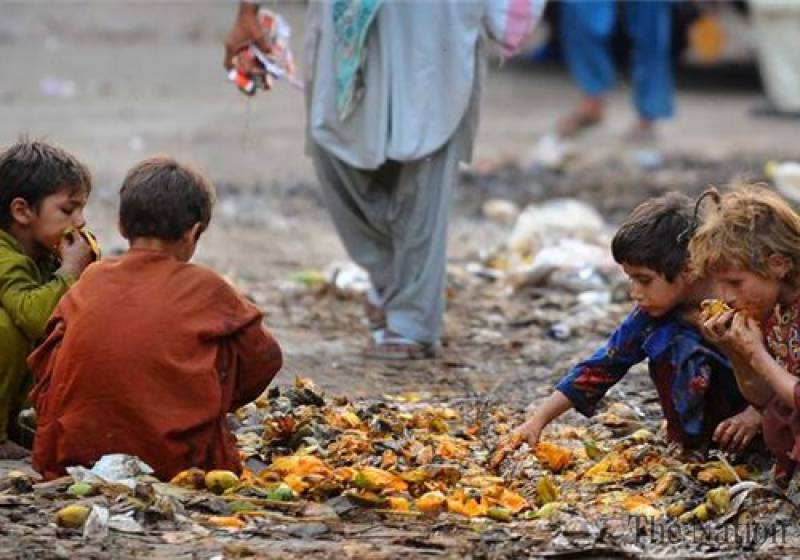The Global Hunger Index recently released a survey report placing Pakistan at 107 in a ranking of 118 developing countries. The ranking, measuring the success of different countries in eliminating hunger, revealed Pakistan to be lagging behind most of its South Asian neighbours. (Dawn)
The magnitude of the humiliating statistics is disturbing. Almost a quarter of the population of a country that Allah سبحانه وتعالى has blessed with the best of resources is undernourished. This is an agricultural country, where more than 50% of the population on some level is involved with farming. Not only is this land capable of producing the best of crops, it has outstanding brains and bodies ready to perform and produce them. The report states that at the current rate of decline, by 2030 Pakistan will reach moderate to alarming hunger levels.
Comment:
Pakistan’s economy largely depends on agriculture. It is not just the sector that contributes the most to the GDP but it also provides a large number of people with jobs. So what is the cause of such disturbing figures? Negligence on the part of the authorities is the foremost reason. We all know the story of Hazrat Yousaf (as) and how he saved Egypt from the famine that afflicted it for seven years. It was his strategies and complete loyalty to his people and trust in Allah سبحانه وتعالى that saved the nation from such a calamity. Here we see a land that is rich in abundance, but neglect of the rulers is causing its population to stay hungry.
Pakistan is an agricultural country with an extensive irrigation system, water that plays the role of lifeline for cultivation. Average rainfall every year is 255 mm, but often this blessing turns into destruction because no precautionary measures are taken to prevent floods. Also irrigation facilities are not monitored causing serious problems to the farm sector. An important factor in this is the capitalist system of land ownership and of agricultural credit, which means that crops are grown to pay interest on loans, and are not meant to feed people, but cash crops. The feudal system of land ownership takes the initiative away from the actual grower.
Sadly we live in a country where the slogan used to come in power is of Roti, Kapra aur Makaan (bread, clothing and shelter). This proves that our leaders totally understand what the needs of the people are, but they don’t see them as needs but as weaknesses which they can exploit to stay in power and gain their own interest. As landlords and feudal lords do not cultivate their own lands, in fact most of them don’t even live near them preferring an urban life, tenants have no incentive for their hard work so the productivity remains low in the agricultural sector. Most of the people in Government have feudal backgrounds or are closely linked to them. Whatever old methods of cultivation they are using are more than enough for them as they are not thinking or planning to produce to feed the masses, but only to fill their pockets.
Rural infrastructure like roads, storage facilities, transport, electricity, education, sanitation and health facilities, are inadequate to meet the requirement of growth of agriculture. Total length of farm-to-market road is not only long but their condition is also poor. Many villages have no metaled roads at all. Electricity is not available to the rural population either.
What we need is a pious leadership which understands the needs of its people and who fears Allah سبحانه وتعالى in the matter of conducting state affairs; and an Islamic system that plans according to the needs of people, where the betterment of people is considered as the betterment of the state. If all the barren land in Pakistan is distributed among people ready to cultivate it in accordance to the laws of Islam, and they are provided help and training and are given incentives and rewards, how is it possible that someone will sleep hungry in a land like this? Take the example of Hazrat Umar when he took the land back from Bilal ibn Haris ibn al Mazni that was granted to him by the Prophet ﷺ as he wasn’t able to cultivate all of it. Umar asked him to return the part he couldn’t use and divided it amongst the Muslims. In addition, under the true Islamic system of the Khilafah, a person who owns land and cannot use it for three years, will have it taken from him by the State and it will be given to a capable person.
عَنْ عُثْمَانَ بْنِ عَفَّانَ أَنَّ النَّبِيَّ صَلَّى اللَّهُ عَلَيْهِ وَسَلَّمَ قَالَ: «لَيْسَ لِابْنِ آدَمَ حَقٌّ فِي سِوَى هَذِهِ الْخِصَالِ بَيْتٌ يَسْكُنُهُ وَثَوْبٌ يُوَارِي عَوْرَتَهُ وَجِلْفُ الْخُبْزِ وَالْمَاءِ»
Uthman ibn Affan reported: The Prophet ﷺ said, “There is no right for the son of Adam except in these things: a house in which he lives, a garment to cover his nakedness, a piece of bread and water.” (Sunan At-Tirmidhi 2341)
All these are rights given to people by Almighty Allah سبحانه وتعالى. So it becomes a responsibility for the people who understand the need of others to fulfill their duties and work for the establishment of the Khilafah (Caliphate) based upon the method of the Prophethood that alone will implement all the laws of Islam and hence will provide this Ummah its due rights.
Ikhlaaq Jehan

